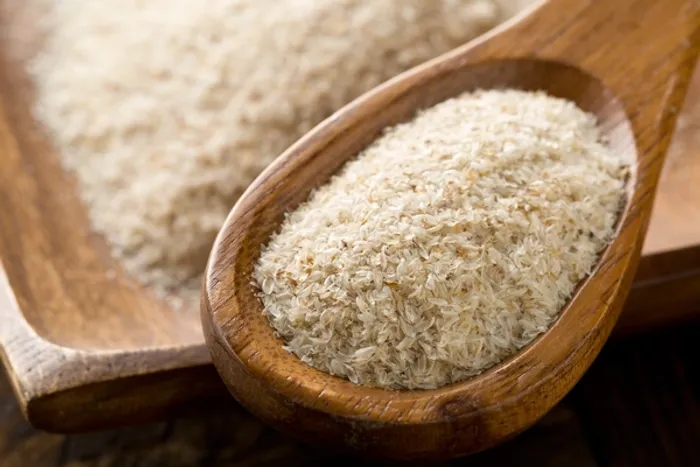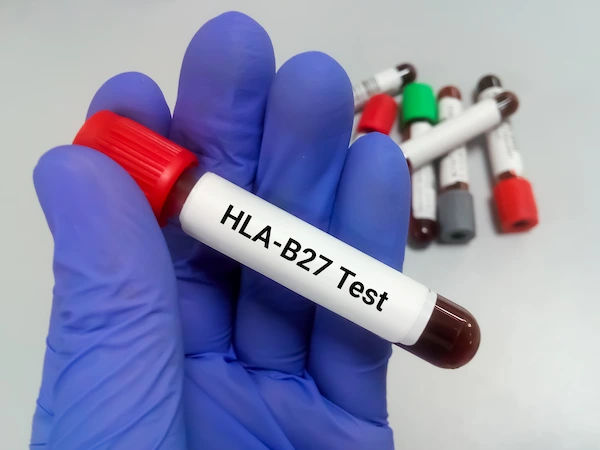Psyllium Husk (Isabgol): Benefits, Uses, and Possible Side Effects
Discover the benefits, uses, and possible side effects of isabgol (psyllium husk). Learn how this natural remedy supports digestion, heart health, and balanced blood sugar while helping relieve constipation safely.


Introduction — Why Psyllium Husk (Isabgol) Matters
If you’ve heard friends or family talk about isabgol, they’re referring to psyllium husk — one of the most trusted, gentle ways to increase soluble fibre intake. People use it to support regular bowel movements, maintain healthy cholesterol levels, and help balance blood sugar. Because it absorbs water and forms a gel, psyllium works as a natural constipation remedy and supports overall digestive comfort. In this guide, you’ll learn the top benefits of isabgol, practical ways to use psyllium husk, and important safety considerations.
Consult a Top Nutritionist for Personalised Advice
What Is Psyllium (Isabgol)?
Psyllium husk comes from the seeds of Plantago ovata, a plant cultivated mainly in India. The husk is rich in soluble, gel-forming fibre that swells when mixed with water, forming a soft, viscous gel. This unique property helps increase stool moisture and bulk, softens hard stools, and slows digestion — which supports steady blood sugar and helps trap bile acids that can lower LDL (“bad”) cholesterol.
You’ll find psyllium available as whole husk, fine powder, capsules, tablets, or fibre wafers. Its taste is mild and neutral, making it easy to mix with water, milk, or smoothies, or sprinkle over soft foods such as yoghurt or porridge.
Isabgol Benefits at a Glance
Research and clinical experience show that psyllium offers a wide range of digestive and metabolic benefits when taken regularly with sufficient fluid.
Supports Regularity and Comfort
Psyllium husk helps relieve occasional constipation by softening and bulking stool, while also firming loose stools by absorbing excess water. This gentle balance makes it effective for both sluggish and sensitive digestion.
Eases Straining and Promotes Comfort
Because it softens stools and increases their bulk, psyllium reduces straining during bowel movements. This can be particularly helpful for people managing haemorrhoids or recovering from anal fissures or certain surgeries, as advised by a clinician.
Aids Irritable Bowel Symptoms
For those with irritable bowel syndrome (IBS), particularly constipation-predominant IBS (IBS-C), soluble fibre such as psyllium can help improve stool consistency and reduce discomfort. It is often better tolerated than harsher fibre sources.
Supports Heart Health
When taken daily as part of a diet low in saturated fat, psyllium can modestly lower LDL cholesterol levels. This occurs as the soluble fibre binds to bile acids in the intestine, which helps remove cholesterol from the body.
Helps Regulate Blood Sugar
Psyllium slows carbohydrate absorption, promoting steadier blood sugar levels and improved glycaemic control. It may support individuals with diabetes or pre-diabetes when used alongside a balanced diet and medical supervision.
Encourages Satiety and Weight Management
The gel-forming fibre of psyllium can increase feelings of fullness, helping to control appetite and support weight management when combined with healthy eating habits.
Nourishes Gut Health
As a prebiotic fibre, psyllium feeds beneficial gut bacteria, promoting a healthier intestinal environment and supporting long-term digestive wellness.
Psyllium Husk Uses: How to Take It and What to Expect
The uses, how to consume it include:
Start slowly and increase your intake gradually to allow your body to adjust. Always mix psyllium with at least 240 mL (8 oz) of water or another liquid — never swallow the dry powder. Because fibre can affect the absorption of certain medicines, it’s best to take psyllium at least two hours before or after other medications or supplements, unless your clinician advises otherwise.
Check the label for fibre content per serving, as different products vary. Always follow the dosage and preparation instructions provided on your product or by your healthcare provider.
Using Psyllium as a Constipation Remedy
If your goal is smoother, more regular bowel movements, consistency is key. Choose a time that’s easy to remember each day — morning or evening — and mix your serving of psyllium with water, juice, or a smoothie. Drink it promptly before it thickens too much, followed by another glass of water.
Most people notice improvements within 12 to 72 hours, with the best results after several days of regular use. Combine psyllium with lifestyle habits such as good hydration, daily movement, and a diet rich in vegetables, fruits, beans, nuts, and whole grains for optimal digestive health.
For Diarrhoea or Mixed Bowel Habits
Psyllium’s gel-forming action also helps absorb excess water, firming up loose stools and promoting a more balanced bowel pattern. Start with a smaller dose to see how your body responds, and maintain hydration, especially if you’ve lost fluids. If diarrhoea persists for more than two days, or you experience blood, fever, or severe abdominal pain, seek medical advice.
For Cholesterol and Heart Health
Adding psyllium to a heart-healthy diet can help lower LDL cholesterol levels. Pair your fibre intake with plenty of vegetables, fruits, legumes, and whole grains, and opt for unsaturated fats such as olive oil instead of saturated ones. Regular physical activity further enhances these benefits.
For Blood Sugar Management
Psyllium can help stabilise blood sugar by slowing carbohydrate digestion. Many people take it shortly before meals to moderate glucose spikes, but always follow the guidance on your product label. If you use insulin or diabetes medication, monitor your levels carefully when starting psyllium and consult your healthcare provider to prevent low blood sugar.
How Much Psyllium Should You Take?
Most adults start with one serving per day, as directed on the label, and gradually increase to one or two servings daily as tolerated. Health authorities recommend 25–30 grams of total dietary fibre per day from both foods and supplements. The right amount varies by individual — your diet, goals, and tolerance all play a role. When in doubt, seek advice from your clinician or a registered dietitian.
What to Mix Psyllium With (and How to Make It Pleasant)?
Water remains the simplest and most effective choice, whether cold or at room temperature. You can add a squeeze of lemon, a splash of fruit juice, or a sprinkle of cinnamon for taste. Psyllium also blends well into smoothies with milk, yoghurt, or berries, or can be stirred into porridge or yoghurt — just consume it before it thickens too much.
Safety, Side Effects, and Interactions
Most people tolerate psyllium well, especially when increasing their intake slowly and drinking enough fluids. Still, it’s important to know what to expect.
Common, Usually Mild Effects
Temporary bloating, gas, or mild cramping may occur as your body adjusts. These symptoms typically ease within a few days.
Less Common but Important Considerations
Because psyllium swells rapidly, never swallow the dry powder. Always mix it with plenty of liquid, and avoid taking it right before lying down. People with swallowing difficulties, oesophageal narrowing, or bowel obstruction should only use psyllium under medical supervision. Rarely, allergic reactions such as rash, itching, or breathing difficulty may occur — if so, seek urgent medical help.
Medication and Nutrient Interactions
Psyllium can interfere with the absorption of certain medications and nutrients by trapping them in its gel. To minimise this, take it at least two hours apart from medicines, including thyroid and diabetes treatments, unless your doctor gives different instructions.
Who Should Avoid Psyllium or Seek Medical Advice First?
You should consult a clinician before using psyllium if you have a known bowel obstruction, a swallowing disorder, unexplained abdominal pain, rectal bleeding, or are on multiple medications with narrow therapeutic margins.
Children should use psyllium only under paediatric guidance. During pregnancy or breastfeeding, it is generally considered safe but should be confirmed by your healthcare provider if you have complications or are taking medication.
How to Choose a Good Psyllium Product?
Read labels carefully for fibre content per serving, and opt for products with minimal added sugars or artificial sweeteners. Reputable brands that follow good manufacturing practices or third-party testing are preferred. If you are gluten-free, check for certification to ensure purity. Finally, select a form — husk, powder, capsule, or wafer — that you can use consistently.
Everyday Tips to Get the Most from Isabgol
The everyday tips include:
- Daily use works better than occasional doses for maintaining regularity and supporting cholesterol health.
- Combine psyllium with a diet rich in whole plant foods for diverse fibres and nutrients.
- Staying active stimulates gut movement, and hydration is essential — fibre works best when there’s enough fluid in your system.
- If you’re increasing your dose, do so gradually to avoid gas or discomfort.
When to Seek Medical Advice
Contact a healthcare professional if you notice severe or persistent abdominal pain, no bowel movement after several days, blood or black stools, unexplained weight loss, fever, or worsening symptoms of an existing gastrointestinal condition. Seek immediate help for allergic reactions such as swelling, hives, wheezing, or difficulty breathing.
Conclusion
Psyllium husk, or isabgol, is a time-tested, natural way to improve digestive health and overall well-being. By providing gentle relief from constipation, supporting heart and metabolic balance, and promoting regularity, it remains one of the most versatile sources of soluble fibre. Consistent use with sufficient fluids and a balanced diet helps you experience its full benefits safely. Always listen to your body, adjust gradually, and seek professional guidance if symptoms persist or new concerns arise.
Consult a Top Nutritionist for Personalised Advice
Consult a Top Nutritionist for Personalised Advice

Ms. Sushma Jaiswal
Dietician
42 Years • M.Sc.(Food & Nutrition)
Bengaluru
Swasthya Nutrition, Bengaluru

Ms. Neelanjana J
Dietician
5 Years • Bsc., Msc. Nutrition and Dietetics specialised general weight management, PCOS/PCOD weight loss and Diabetes management. A clinical dietitian with 4+ year experience specializing in evidence-based, result-oriented nutrition therapy. I have extensive experience in weight loss, thyroid management, PCOD/PCOS, weight gain, and diabetes & prediabetes care. My approach is personalized, practical, and sustainable—focusing on helping individuals achieve long-term lifestyle change rather than quick fixes. I work closely with clients to understand their medical history, lifestyle, and goals, and then design customized diet plans that support hormonal balance, metabolic health, and overall wellbeing. My goal is to make nutrition simple, realistic, and effective—so you see measurable results and feel your healthiest self.Auther in Health benefits of jackfruit (Artocarpus heterophyllus Lam.) seeds: A review (2023) The Pharma Innovation Journal Co- Auther in Malnutrition in Women: A review (2023) The Pharma Innovation Journal. Highfield Level 3 in HACCP. Highfield Level 4 International Award in Food Safety Managment
Bengaluru
Apollo Clinic, JP nagar, Bengaluru

Ms. Suhita Sinha
Dietician
8 Years • BSC Food & Nutrition
Kolkata
Chikitsa Medicare Centre Pvt. Ltd.Sattelite Centre Behala Chowrasta, Kolkata

Ms. Soma Saha
clinical nutrition
17 Years • B.Sc. - Home Science (Food & Nutrition), M.Sc. - Home Science (Food & Nutrition)
Kolkata
Dr Utsa Basu Clinic, Kolkata
(50+ Patients)

Ms Mohanapriya J
clinical nutrition
12 Years • MSc Clinical Nutrition
Chennai
Apollo Sugar Clinics , Greams Road, Chennai
Consult a Top Nutritionist for Personalised Advice

Ms. Sushma Jaiswal
Dietician
42 Years • M.Sc.(Food & Nutrition)
Bengaluru
Swasthya Nutrition, Bengaluru

Ms. Neelanjana J
Dietician
5 Years • Bsc., Msc. Nutrition and Dietetics specialised general weight management, PCOS/PCOD weight loss and Diabetes management. A clinical dietitian with 4+ year experience specializing in evidence-based, result-oriented nutrition therapy. I have extensive experience in weight loss, thyroid management, PCOD/PCOS, weight gain, and diabetes & prediabetes care. My approach is personalized, practical, and sustainable—focusing on helping individuals achieve long-term lifestyle change rather than quick fixes. I work closely with clients to understand their medical history, lifestyle, and goals, and then design customized diet plans that support hormonal balance, metabolic health, and overall wellbeing. My goal is to make nutrition simple, realistic, and effective—so you see measurable results and feel your healthiest self.Auther in Health benefits of jackfruit (Artocarpus heterophyllus Lam.) seeds: A review (2023) The Pharma Innovation Journal Co- Auther in Malnutrition in Women: A review (2023) The Pharma Innovation Journal. Highfield Level 3 in HACCP. Highfield Level 4 International Award in Food Safety Managment
Bengaluru
Apollo Clinic, JP nagar, Bengaluru

Ms. Suhita Sinha
Dietician
8 Years • BSC Food & Nutrition
Kolkata
Chikitsa Medicare Centre Pvt. Ltd.Sattelite Centre Behala Chowrasta, Kolkata

Ms. Soma Saha
clinical nutrition
17 Years • B.Sc. - Home Science (Food & Nutrition), M.Sc. - Home Science (Food & Nutrition)
Kolkata
Dr Utsa Basu Clinic, Kolkata
(50+ Patients)

Ms Mohanapriya J
clinical nutrition
12 Years • MSc Clinical Nutrition
Chennai
Apollo Sugar Clinics , Greams Road, Chennai
More articles from General Medical Consultation
Frequently Asked Questions
How fast does psyllium work?
Most people experience softer, easier stools within 12 to 72 hours. Consistent daily use and proper hydration bring the best results.
What’s the best time to take it?
Any time that suits your routine — morning or evening. If you’re using it for blood sugar control, taking it before meals may help. Always follow product directions.
Can I take psyllium every day long-term?
Yes. Psyllium is non-habit-forming and safe for long-term use, provided you drink plenty of water and keep your diet balanced. Separate it from medications by at least two hours.
Does psyllium help with weight loss?
It can increase satiety, helping you eat fewer calories, but it’s not a standalone weight-loss method. Combine it with healthy eating and regular activity.
Is psyllium safe during pregnancy or for children?
Generally yes, but it’s best to check with your healthcare provider — especially during pregnancy or if children need guidance on fluid intake and dosage.




